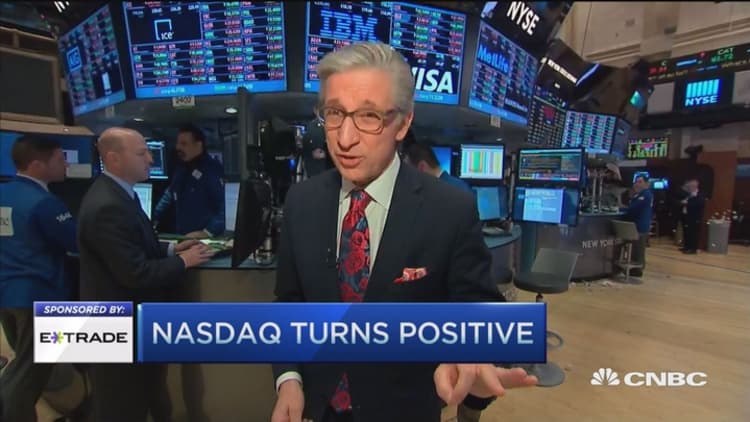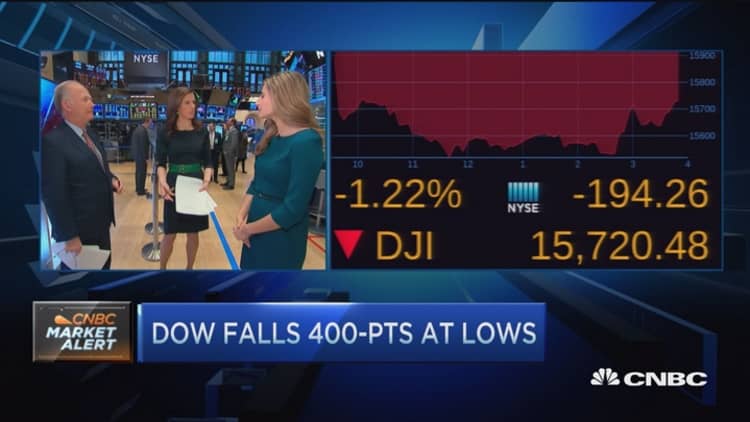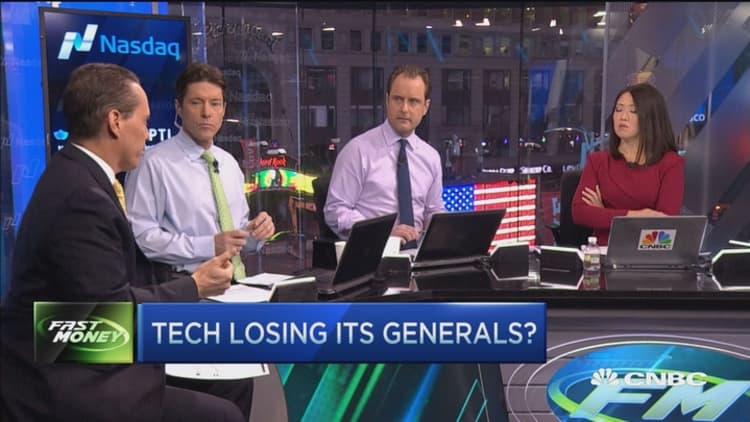


Stocks may continue to retest January's lows on Friday, as traders await January retail sales and consumer sentiment — ahead of the three-day Presidents Day weekend.
Retail sales for January are expected to be up 0.3 percent, on the core, after a 0.3 percent decline in December, according to Reuters. Core excludes automobiles, gasoline and building materials. There is also import prices at 8:30 a.m. ET, and business inventories and consumer sentiment are reported at 10 a.m. Sentiment is expected to be unchanged at 92 in the first February reading.
"Michigan sentiment is going to be a big deal to see if consumer confidence is all right. The jobless claims, JOLTs, consumer confidence and the jobs report itself — we've had a series of numbers that have been OK, and we'll get more," said Jim Paulsen, chief investment strategist at Wells Capital Management.
Read More Yellen on negative rates: 'We wouldn't take those off the table'
Stocks were rocked Thursday, as markets fed on fears about economic weakness and worries about the health of European banks. The Dow was down 254 points to 15,660, and the S&P fell 22 to 1,829, after twice revisiting 1,812, its low from Jan. 20. Treasury yields fell, with the 10-year touching a low of 1.52 percent. It was trading at 1.65 percent at the end of the day.
Oil was also a factor, and it traded lower most of the day on supply concerns. But a late-day headline saying the UAE would support OPEC production cuts if others went along with it drove oil higher and that helped erase some losses in stock.
"The markets have been driven by confidence around central banks. I think the markets are questioning their abilities and some of their policies and the effect of negative rates," said Greg Peters, senior investment officer of Prudential Fixed Income and a portfolio manager on Prudential Absolute Return Bond fund. Nearly a dozen countries have negative rates, and Sweden ratcheted down its sub-zero rates even further Thursday, shaking markets around the world.
Read MoreFor many these days, it's now 'in gold we trust'
Fed Chair Janet Yellen testified on Capitol Hill for a second day Thursday and she also discussed negative yields, and the fact the Fed had studied them in 2010. But some strategists said Yellen should have said more forcefully that the Fed was not interested in that policy.
"I don't know why Yellen didn't say that's an option, and we're not going to do that," said Paulsen.
Peters said the negative yields were a big part of the market fear. The Bank of Japan surprised markets with negative yields, and it has not seen the intended reaction in markets. Its currency is now much stronger, and its stock market has been crushed.
Read MoreIf US dollar retreats, this is your best play
"I think there's real concern about the implication of negative yields," said Peters. "It's killing the banking system. That's their lifeblood, and that's what you're seeing in Europe. … I just think the uncertainty, the unknowns and the unintended consequences of these policies we haven't seen before just creates a volatility storm, and I think we're in the middle of one now."
Paulsen said the markets are hoping for a policy catalyst now. "Everyone's looking for a policy catalyst but I think it has to be an economic one," he said, pointing to the fact that the Atlanta Fed has now put GDP for the first quarter at 2.5 percent, double the Feb. 1 growth forecast. Fourth-quarter growth was reported at 0.7 percent, and the first quarter may now show signs of a bounce back.

He said stock valuations have improved and the market is looking more attractive. An improving economy would help.
"I think we're bottoming out," said Paulsen. "We can't say definitely we're there yet. Even if we go below 1,800, to me I see the process of bottoming here."
But Peters said there's doubt about the strength of the U.S. given other economic forces in the world. "The question is how long can the U.S. be a port in the storm. It's not like it's super stable, super strong," he said.
Friday's earnings reports include ArcelorMittal, Brookfield Asset Management, Red Robin Gourmet Burgers and Calpine.
Read MoreFear has taken over the market


